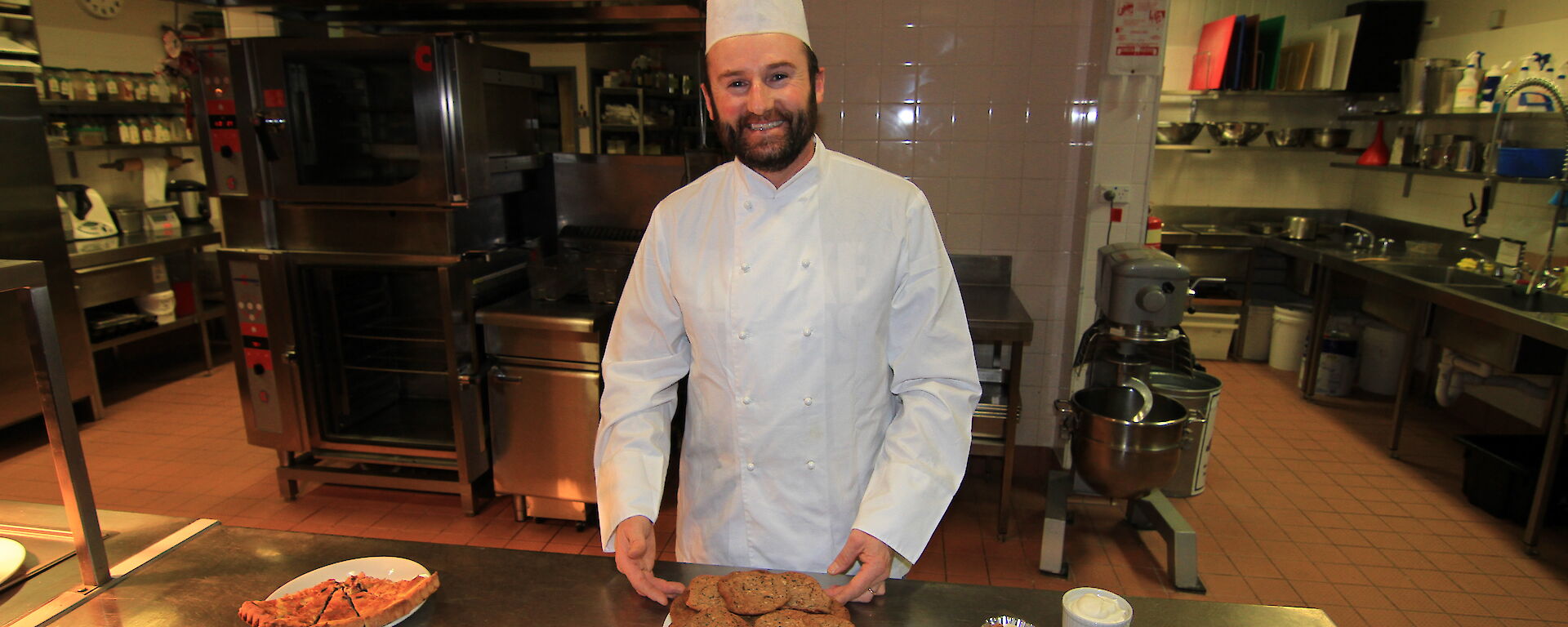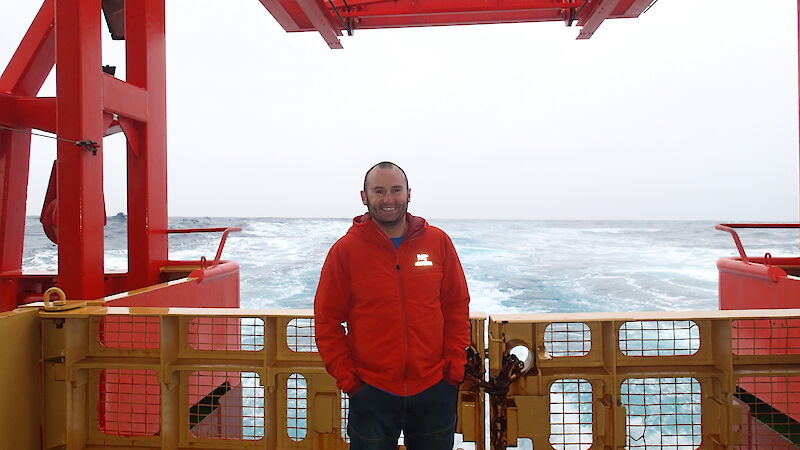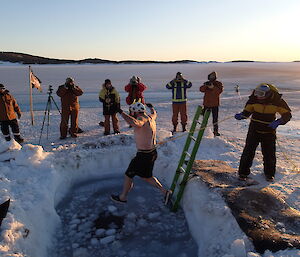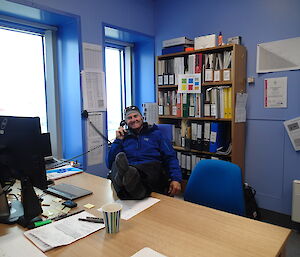What’s it like to be a station leader in Antarctica? Former police officer, Steve Robertson, provides an insight into his first time in the role at Australia’s most remote Antarctic station.
Unlike many of my colleagues here at Mawson, living and working in Antarctica was not a boyhood dream for me. In fact, I only started thinking about becoming a station leader in mid-2012.
It happened while I was a Sergeant with Victoria Police. I was managing a firearms training venue in Port Melbourne when a former station leader, Bill De Bruyen, visited. At the time Bill was a Superintendent with Victoria Police and he had previously worked at Davis station. We got chatting and I got interested and he encouraged me to apply.
To pursue the role I had to resign from Victoria Police, where I’d been a police officer for 20 years. In that time I had worked in busy metropolitan police stations, including Footscray and Sunshine in Melbourne’s West, and I had also worked in country police stations, including Wangaratta and Mt Beauty. For a time I was Officer in Charge of a one member police station at Woods Point in Victoria’s High Country.
I also worked in pro-active policing roles, including as a Youth Resource Officer and the Victoria Police Gay and Lesbian Liaison Officer. Here I was responsible for establishing and maintaining networks within the Gay, Lesbian, Bi-sexual, Transgender and Inter-sex communities of Melbourne, providing a safe reporting framework while reducing crime in those communities. More recently I moved to a training role where I specialised in firearms, defensive tactics and critical incident management.
When I first arrived at the Australian Antarctic Division headquarters at Kingston I was surrounded by experienced station leaders. We went through the initial station leader training together, but then they left me! The station leader training program is approximately 12 weeks long and as they were so experienced they did not need to sit through it all again. So I was on my own.
The training consisted of briefings and more briefings. These included briefings from the Polar Medicine Unit, the aviation, environment, policy and media groups, engineering, catering and workplace health and safety, among others. And then there were the science briefings. Each and every person I spoke to was passionate about their program and where it fitted into the big picture, and it was amazing to experience the whole of workforce commitment to the overall objective of science. It wasn’t too long into my training when the ‘Mawsonites’ — my team for the next 14 months — arrived and I got busy establishing a relationship with them.
I expected Antarctica to be cold, and when it was announced that I would be coming to Mawson I was told it would be windy too. I was also told Mawson was the most beautiful of all of the three Antarctic stations, due mostly to our ability to travel across the sea ice during winter and onto the plateau and to climb mountains all year round. Back home I spend a lot of time in the outdoors, so on paper Mawson was perfect. And it is. As Station Leader you don’t get out as much as you would like to, or as much as the other expeditioners, but when you do it is simply stunning. It is wild and extreme and at times intense, but at the same time calm and peaceful. Before arriving I told myself it will be what it will be, and I worked hard on not conjuring up images in my mind. Now that I am here it is more than what I could ever have hoped for.
Every day presents a new challenge. There are the consistent challenges of working in the harshest environment on Earth — we have had temperatures of −30°C and below and winds in excess of 180km/h. These conditions are too harsh for us to work outside. However, the weather is more consistently between −15°C and −25°C, depending on the time of the year, and the wind consistently blows at around 50km/h. These sorts of conditions make the simplest of work tasks challenging.
People also provide a great challenge — particularly ensuring they keep a perspective on things. There are 16 of us on station and over the past seven months we have grown into a family. Just like any family we have our disagreements and squabbles but we also have our share of belly laughs too. Living and working in such an insulated world, it is very easy to lose perspective and the little things, if unchecked, can become big things.
A clear highlight for me during my time here so far was my first trip out to Auster Rookery to see the emperor penguins. It was 30th August, my birthday, and there was not a cloud in the sky nor a breath of wind. The baby chicks had hatched and some were beginning to venture away from their doting and protective parents, which provided for amazing photographs. After my initial photographic frenzy I just lay on the ice and watched them for several hours.
You may not believe me when I say this but I get a real kick out of seeing the Mawsonites get off station. I truly enjoy the thought of them getting out and about and experiencing this amazing place. To see them return with smiles and heroic tales of adventure and to know that I played my part in making that happen is a good feeling.
The skills I have learnt and honed whilst in Antarctica are transferrable to many fields and any managerial role back in Australia. In any given week and on most days I am dealing with human resource issues, logistics, statutory compliance, policy and even media. As summer approaches I will be managing more and more science as well as the construction of two skiways and the coming and going of aviation assets, including fixed wing aircraft and helicopters. Not to mention managing the station’s emergency response capabilities in the event of an incident.
Whilst none of these skill sets are unique in their own right it is rare to find a single job or role that encompasses them all under the one hat. In fact I am told by ex-station leaders that when I return to Australia I will find it difficult to find any job as challenging or fulfilling as this.
This is not a job for the faint of heart. I believe this role and this experience has significantly increased my self-belief and personal strength. It is stressful and at times very lonely and you need the resolve and strength to stay the course and work through those tough times. You also need a huge dose of humility. You don’t know the answers to everything and that is OK. Be comfortable with yourself and don’t be afraid to make mistakes, because you will make mistakes. And finally, you need to be able to laugh at yourself because if you can’t have a laugh at yourself it is a sad old world.
Steve Robertson
Mawson Station Leader 2014–15





